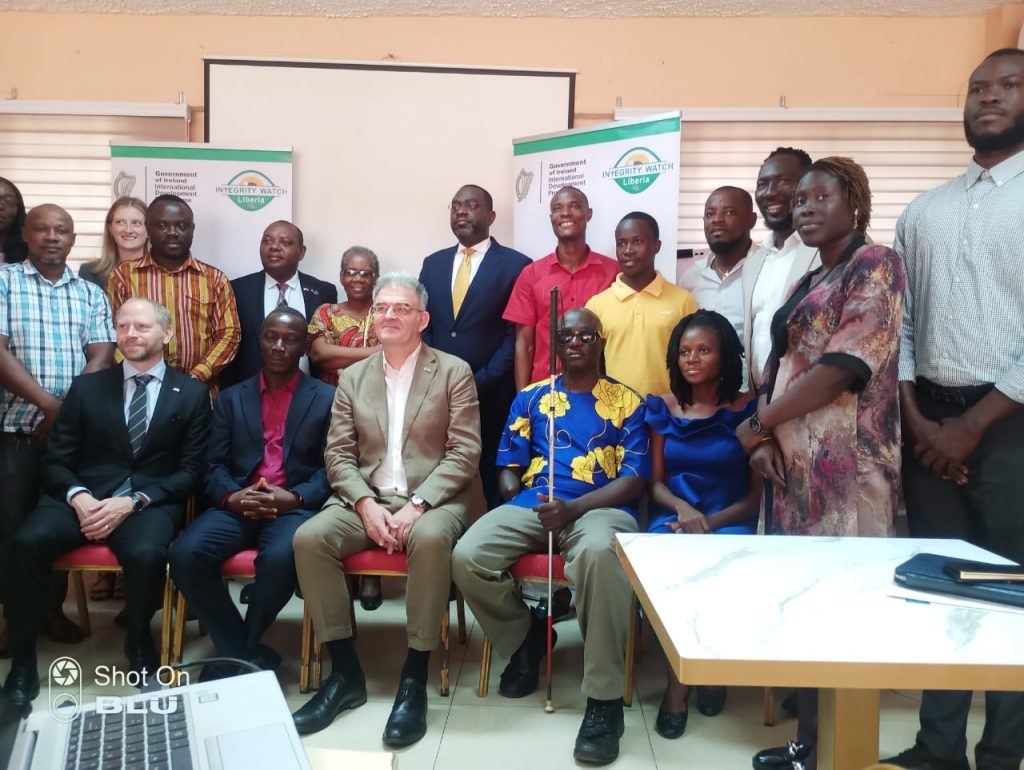Integrity Watch Liberia (IWL), with funding from the Irish government, has launched a pilot project aimed at bolstering governance and accountability within Liberia’s natural resource sector. Recognizing the sector’s potential to bridge Liberia’s substantial financing gap and propel its development agenda, the project seeks to address critical challenges within the sector and optimize the utilization of domestic resources. This initiative stems from the Liberian government’s own Pro-Poor Agenda for Prosperity and Development (PAPD), which identifies significant funding requirements for achieving its development goals. The project underscores the urgency of addressing the current economic crisis and leveraging natural resources effectively to finance crucial development priorities. It emphasizes collaboration among key stakeholders, including government ministries, the legislature, regulatory agencies, civil society organizations, local communities, and the media, to achieve sustainable and equitable resource management.
The project’s core objective is to improve natural resource management through several strategic interventions. Capacity building within the legislature is a key focus, aiming to equip lawmakers with the necessary skills to effectively negotiate, scrutinize, and ratify concession agreements. This enhanced legislative oversight is crucial for ensuring transparency and accountability in the management of natural resources. Furthermore, the project aims to strengthen advocacy efforts, foster effective coordination among stakeholders, and improve overall management practices within the sector. Another vital goal is to refine the existing policy framework to promote sustainable and equitable utilization of Liberia’s natural resources. This comprehensive approach seeks to address systemic issues and create a more robust and transparent system of resource governance.
Ireland’s Ambassador to Liberia, Gerald Considine, highlighted the project’s alignment with Ireland’s foreign and development cooperation policy, which prioritizes justice, human rights, and the rule of law. He emphasized the importance of strong governance in achieving sustainable development and emphasized Ireland’s commitment to supporting Liberia’s efforts in this area. Ambassador Considine underscored the critical role of transparent and accountable governance in empowering citizens and driving transformative development. He also acknowledged Liberia’s rich natural resources, including its rainforests and mangroves, which serve as crucial carbon sinks, and stressed the need for their sustainable and equitable management. This, he noted, is essential not only for Liberia’s economic transformation but also for its climate resilience and adaptation efforts.
The project emphasizes the interconnectedness of sustainable resource management, economic development, and climate resilience. Liberia faces increasing challenges from climate change, including extreme weather events, rising sea levels, and changing rainfall patterns, which impact communities across the country. Sustainable resource management is therefore crucial not only for maximizing economic benefits but also for protecting vulnerable communities from the adverse effects of climate change. The project aims to strengthen Liberia’s capacity to adapt to these challenges and build a more climate-resilient future.
Alben Greeaves, in presenting the project overview, emphasized the multi-faceted approach to improving natural resource management. The project will focus on building legislative capacity to effectively scrutinize concession deals, ensuring greater transparency and accountability in the sector. It also aims to strengthen advocacy efforts, improve coordination among stakeholders, and enhance management practices within the sector. Furthermore, the project seeks to reinforce the policy framework to promote more sustainable and equitable use of Liberia’s natural resources. These combined efforts are expected to contribute to more effective and transparent governance of the sector.
The project has ambitious geographic and impact targets. It is planned to be implemented across all fifteen counties of Liberia, with a projected reach of 175,000 direct and indirect beneficiaries. This wide-ranging approach underscores the project’s commitment to fostering inclusive development and ensuring that the benefits of improved natural resource governance are shared across the country. By empowering local communities and strengthening national institutions, the project aims to contribute to sustainable economic growth, improved livelihoods, and enhanced environmental protection. Ultimately, the project strives to create a more equitable and prosperous future for all Liberians.


